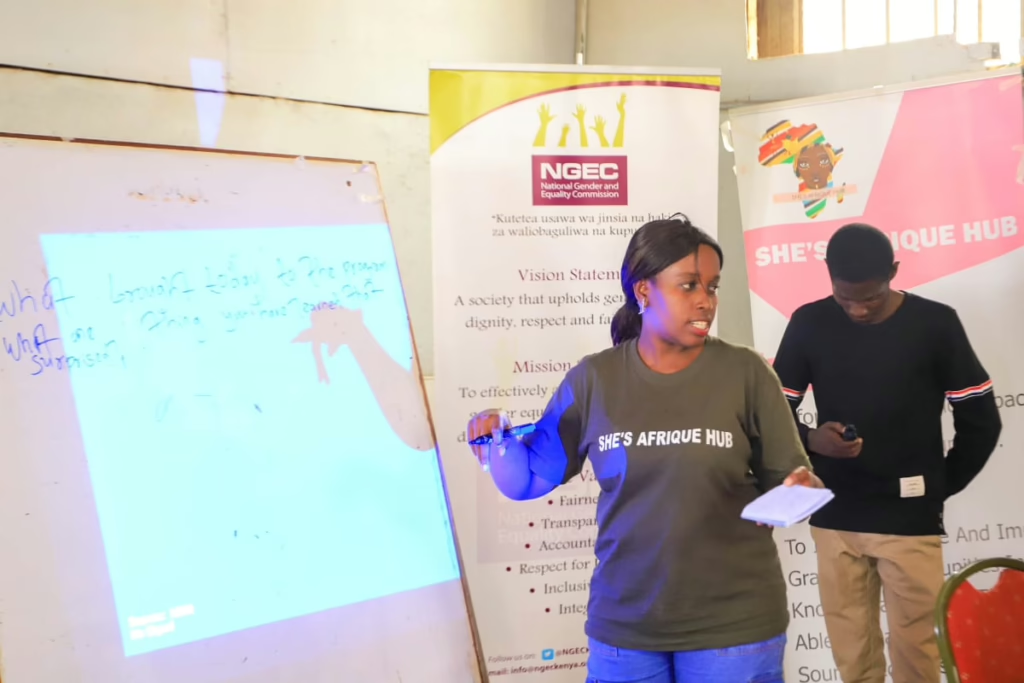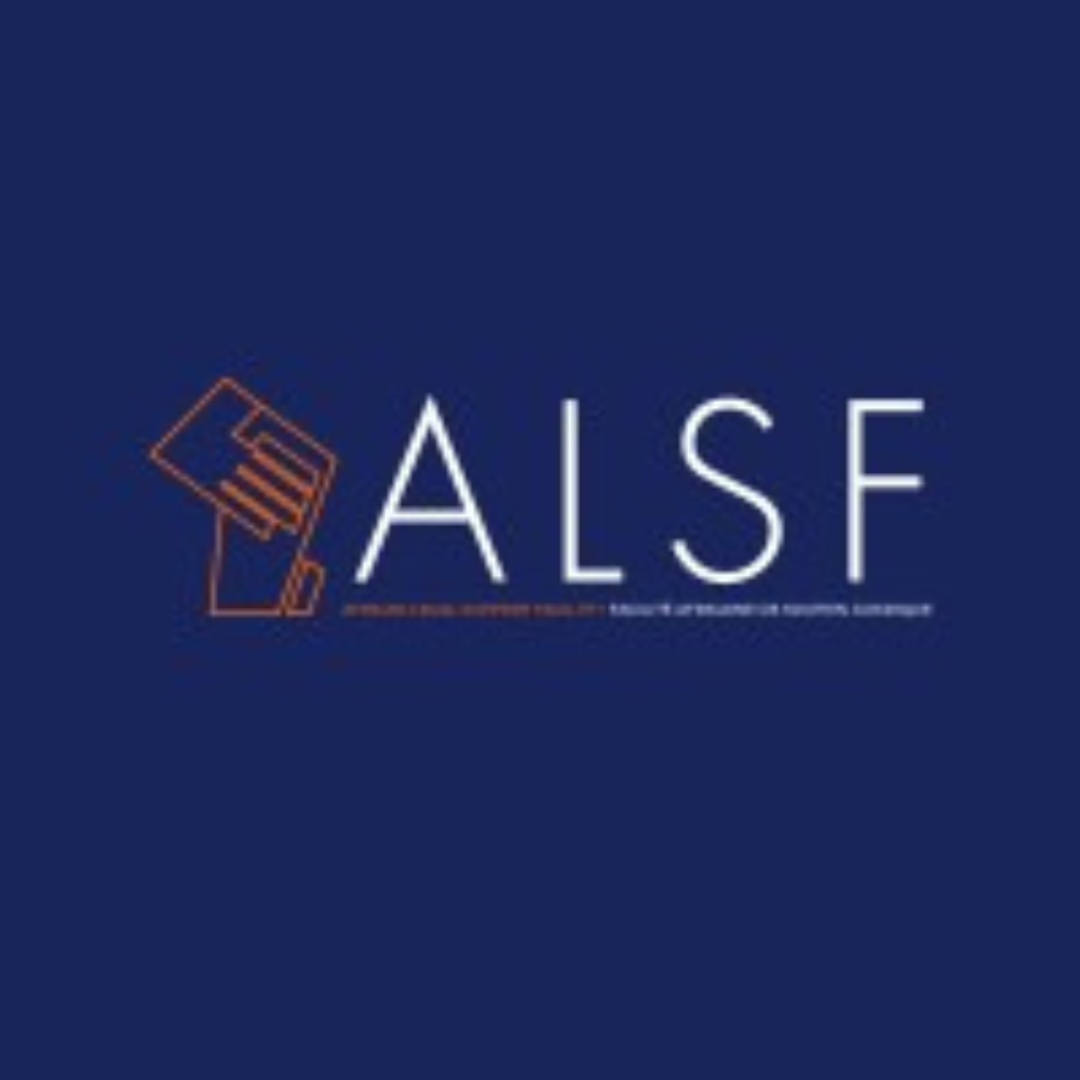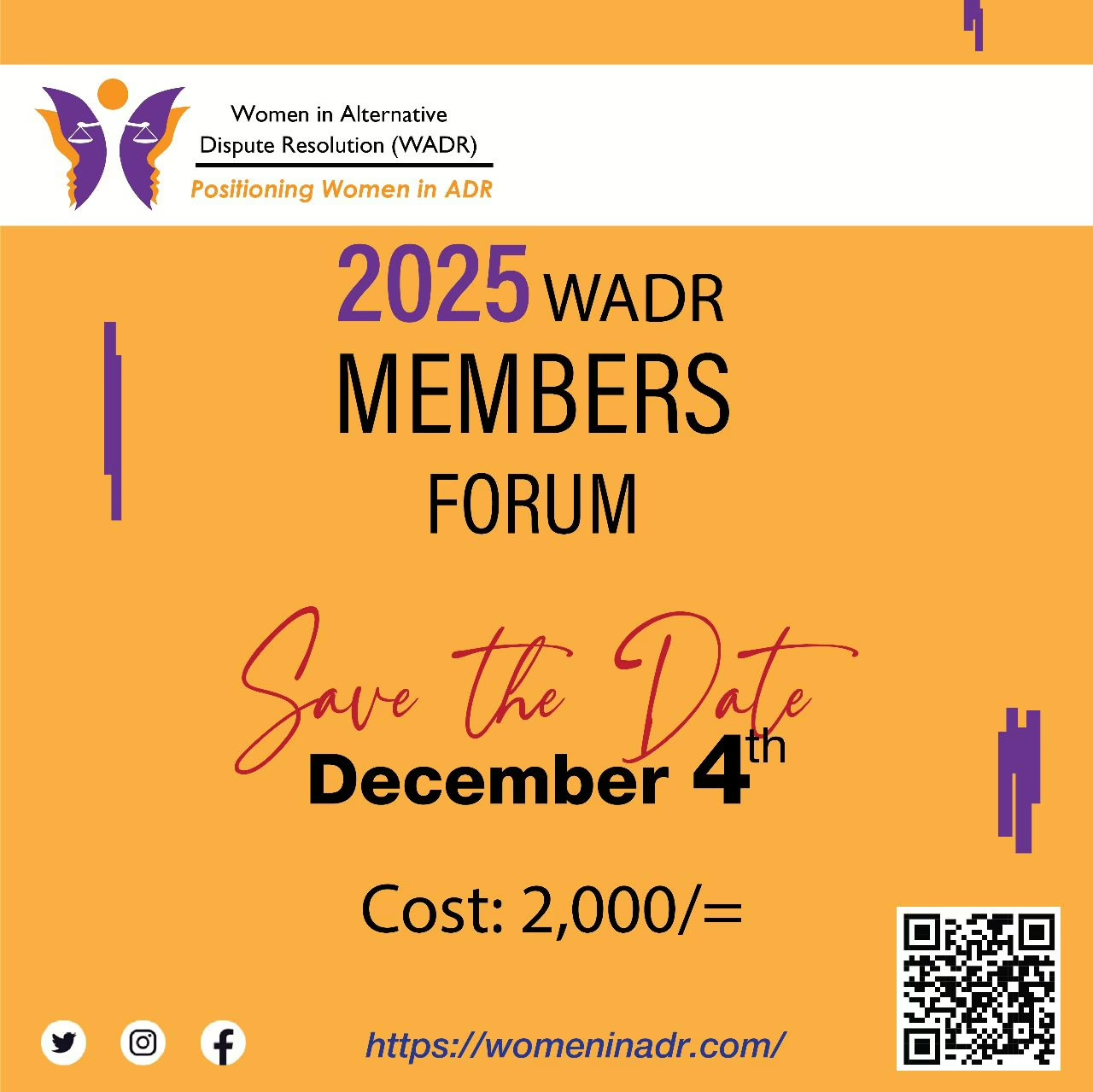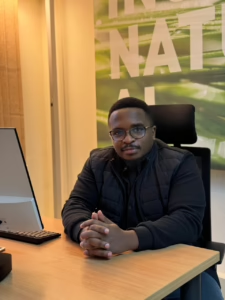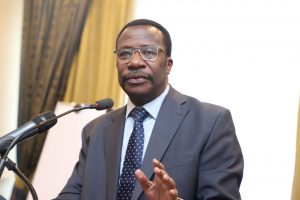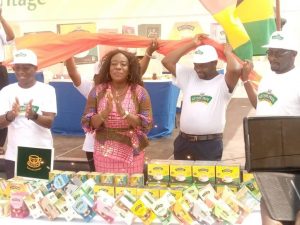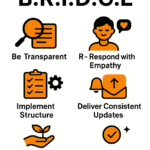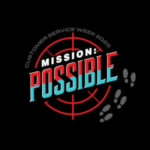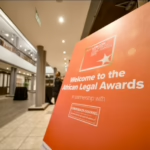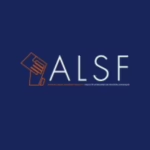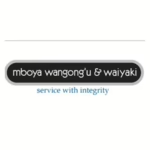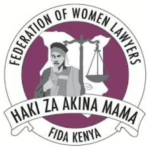“Why did you choose to become a lawyer?” The answer to this question is as personal and diverse as there are lawyers in the legal space. However, the answer to this question more often than not boils down to a blend of three elemental factors: Purpose, passion, and a deep sense of justice.
The three factors highlighted above are significant in establishing where you land and thrive in the diverse legal arena in terms of practice area. Today, we feature Martha Wambui, a lawyer and a trainee advocate at the Kenya School of Law (KSL), whose purpose, passion, and sense of justice led her into the civil society space.
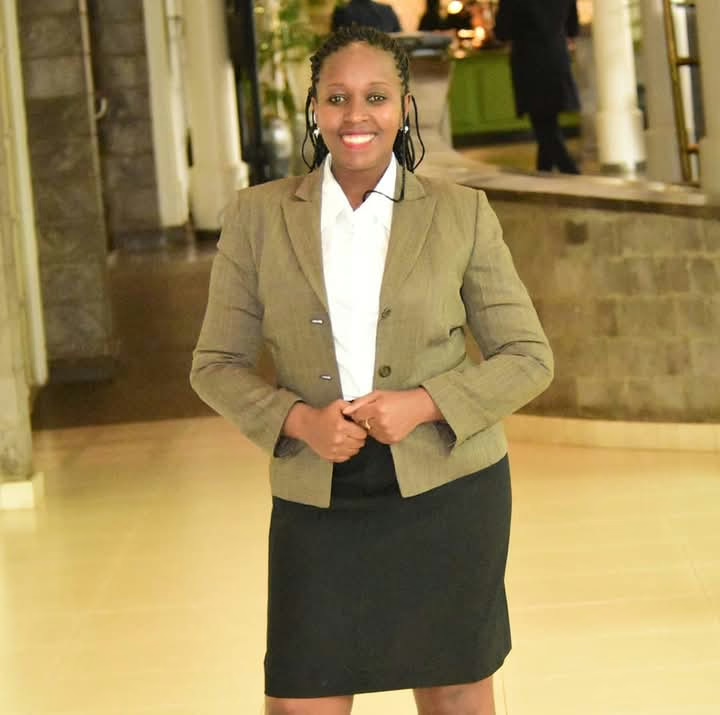 Martha is the Founder of She’s Afrique Hub, a community-based grassroots organization whose mission is to inform, inspire, and impact the grassroots communities. She is also the beneficiary of various global fellowships on civic education, including the Salzburg Global Seminar ( a global think tank for social, political, and economic change) and DW (Deutsche Welle) Akademie, the German Broadcaster’s education and knowledge transfer arm.
Martha is the Founder of She’s Afrique Hub, a community-based grassroots organization whose mission is to inform, inspire, and impact the grassroots communities. She is also the beneficiary of various global fellowships on civic education, including the Salzburg Global Seminar ( a global think tank for social, political, and economic change) and DW (Deutsche Welle) Akademie, the German Broadcaster’s education and knowledge transfer arm.
Enjoy this inspiring read as she maps out how God’s grace fueled her passion for community and equipped her for her purpose as a civic education champion. She also touches on the ripple effect of using her skills and influence as a lawyer to empower the vulnerable, who then become enlightened citizens who pursue social justice for a fairer society.
The Making of a Civic Education Champion: Why I Use My Law Degree to Empower the Community
Martha dreamt of becoming a lawyer since she became a history buff while attending Kabare Girls High School in Kerugoya, Kirinyaga County. “I always did well in history, so much so that those around encouraged me to be a lawyer.”
She was determined to join law school after her O-levels. However, financial constraints threatened her dream of joining the noble profession. “I had to defer my dreams of tertiary education for a year and work as an untrained teacher to raise money for my tuition and upkeep.” Fortunately, she finally managed to join the Mount Kenya University (MKU) Law School a year later in 2014 after raising enough money for one academic year.
However, she had to defer her studies after her first year and take up odd jobs to raise funds for her tuition fees. One of the jobs she took was a cake delivery job at a popular bakery in Nairobi. “One random day, I had a cake delivery destined for Muithaiga Golf Club, and I happened to spot, Paul Muite, SC at the venue while fulfilling the delivery.”
Martha was excited about seeing such a senior member of the Kenyan bar in person, but nervous about approaching him. However, a kind waiter encouraged her to approach him. “I approached him, introduced myself, and mentioned in passing that I had deferred from law school. He asked me for proof of enrollment, and I presented a soft copy of the same, which was saved on my phone. Paul Muite shared his email address with me and requested that I send him my documents, including a reference letter from the school, which I did.”
Unfortunately for Martha, that chance encounter cost her her job at the cake house because her manager ruled that she had overstayed at that particular delivery. With no job, she decided to channel her savings toward a certificate course on NGO management at the Kenya Institute of Social Work and Community Development. A few months later, she received an email from Paul Muite, SC, acknowledging receipt of her documents, and with it, KES 140000 was credited to her account to facilitate her tuition fees for the next academic year.
While juggling law school and odd jobs, she immersed herself into a space she didn’t realize was her biggest passion, civil society. “I volunteered in communities, facilitating civic education as a teacher. At some point, an organization set up in Kiambu County and was looking for young women to nurture into political leadership, and I was one of the ladies chosen to join the program.”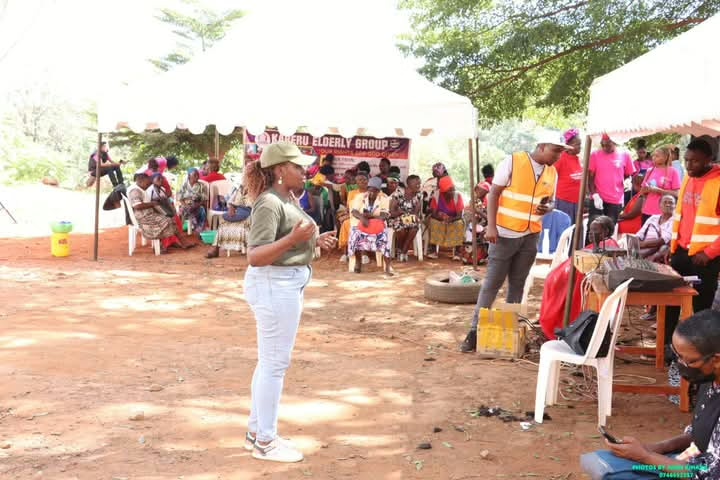
According to Martha, the political leadership program was impactful, exposing her to influential women in leadership, including Martha Karua, SC. It was at that moment that she realized that everything, including the teaching jobs and the NGO Management Course, were all divine grace nudging her into the civil society space. She also dabbled in legal practice at a law firm, working in two different law firms at various points. However, the field work kept calling, and she decided that the traditional lawyer’s path was not for her.
Her passion for civil society pushed her to volunteer in various institutions, groups, and outfits as opportunities arose, some of which include the Thirdway Alliance Kenya, a political party, under the leadership of Dr. Ekuro Aukot. “I volunteered in the Party’s Women’s League, pushing for constitutional reforms, such as the ‘Punguza Mzigo’ Initiative.”
Martha’s journey through law school was rocky, since a course that should have taken four years took nine years. However, while tumultuous, this journey is dotted with divine opportunities that molded the civic education champion we celebrate today (#SheDidThat!).
“While volunteering, I realized that grassroots communities lack basic legal, political, and civic education, a factor that politicians often take advantage of.” Martha’s realization of the dire need for civic education prompted her to establish She’s Afrique Hub in November 2022.
She’s Afrique Hub: Mission, Vision, and Goals
As highlighted earlier, She’s Afrique Hub is a community-based grassroots organization whose mission is to inform, inspire, and impact the grassroots communities. “I once attended a conference in 2018 where Dr. Patricia Kameri, highlighted the three I’s (Inform, Inspire, Impact) during her presentation.” Besides the alliterative ring in the three words (a crucial factor for memorable slogans), the three I’s map out the empowerment cycle/ the information value chain: Gain knowledge, act on it, create desirable change, and others follow suit. Additionally, the three I’s represent a model that is replicable and sustainable.
“I said to myself that if I ever started a civil society organization, the three I’s would be our guiding principles, and that came to pass when I started She’s Afrique Hub. I love one-on-one interactions with people on the ground, which helps me understand them and their challenges.” For her, even as she pursues her Advocates Training Program at the Kenya School of Law (KSL), the law remains a tool for social change.
Her dedication to social change presents itself in She’s Afrique Hub’s three core values, highlighted below:
- Equality: We are all equal regardless of any demographic, social, or economic factors.
- Integrity: Transparency and accountability with the resources within the organization. “When giving back to the community, it is prudent to have a heightened awareness of the fact that we’re dealing with people’s resources.”
- Community Participation: Bringing communities together, giving them a listening ear, and proposing solutions.
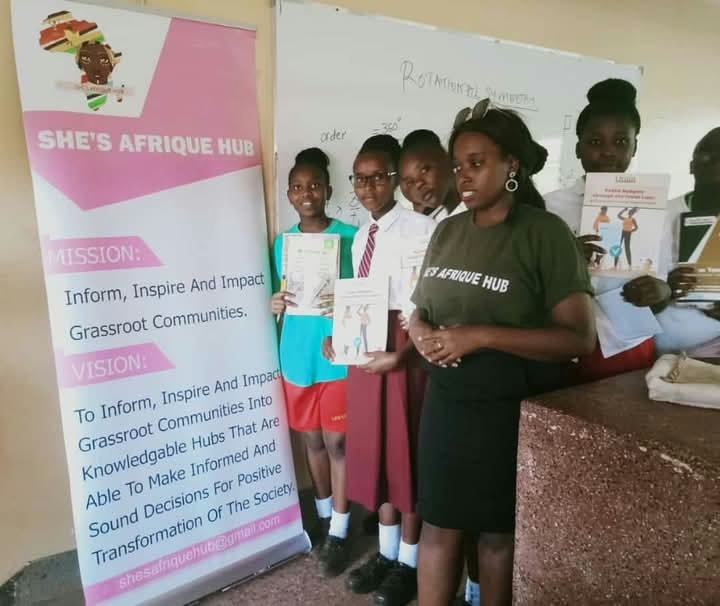 A Focus on the Vulnerable Groups at the Grassroots Level
A Focus on the Vulnerable Groups at the Grassroots Level
As a grassroots organization, She’s Afrique Hub primarily focuses on protected/ vulnerable groups, primarily women & girls, youth, and the elderly.
“The elderly citizens are often forgotten in our society today. Therefore, we usually host legal aid clinics in partnerships with other organizations to address their legal issues, such as succession matters and land issues.” Besides addressing their legal concerns, She’s Afrique Hub also partners with cosmetology colleges to facilitate grooming for the elderly as part of its social empowerment pillar.
“It’s unfortunate that due to advanced age and other factors, some of these senior citizens cannot groom themselves properly, so they walk around unkempt. So the volunteer cosmetology students give them haircuts, trim their nails, e.t.c.”
Still on the social pillar and the elderly, the organization also incorporates volunteer medical professionals in their legal aid camps. The medics test blood pressure, blood sugar, and illnesses common within this demographic, free of charge.
Regarding the youth, She’s Afrique Hub offers empowerment through information, including sharing training opportunities on various thematic areas as they arise. Second, in Kiambu County, where the organization is based, young people, especially young men, indulge in drug abuse, which leads them into petty crime. Unfortunately, they end up getting arrested and locked up in remand where they cannot afford to raise bail. In such instances, She’s Afrique Hub engages pro bono advocates to negotiate for bail.
Third, the most prevalent issue women in the region face is getting tied up in microfinance loans with unfair terms that cause them to lose their property to auctioneers. “We try to educate them on the essence of having a lawyer review any loan agreement before signing it, and keeping a copy of the loan agreement they signed.”
Partnering for Good
She’s Afrique Hub leverages partnerships to run sustainable programs that align with its mandate. Currently, it has two civic engagement programs in conjunction with partners on a project basis. The organization also hands out free copies of the Constitution of Kenya (2010) from Uraia Trust during the teaching engagements with the youth.
However, rights go hand-in-hand with responsibilities, therefore, the program also includes lessons on the responsible use of social media and other digital platforms. “We encourage them that even if they’re using social media to push for a certain agenda, they should understand concepts like disinformation and misinformation to ensure they use their digital platforms responsibly.”
Other projects in She’s Afrique Hub’s pipeline include one on promoting women’s political participation and gender equality. The idea was inspired by a previous project, dubbed Heroine’s Club. The Heroine’s Club was courtesy of a partnership between the organization and DW Akademie. Its purpose was to amplify the voices of the young girls in rural areas. The Heroine’s Club featured model governance structures akin to Kenya’s national and devolved government structures. Consequently, the club members, who are young girls, take up roles in the mirror government; they also participate in debates on current local and international governance issues.
“The debates allowed us to hear their views and understand their perspectives on themes affecting the country, such as, “Do you think money is an important factor when running for a political position?” Besides debates, the club also utilized open forum discussions where the girls gave their two cents on the issues they consider key concerns in Kenya today.
“Quite often, as adults, we tend to underestimate the young people in high school, yet when you want to build the calibre of leaders we desire, you must start imparting the youth with positive values at that impressionable age.”
Martha expresses that She’s Afrique Hub hopes to scale the Heroine’s Club to target the women leaders and nurture them, particularly those aiming to vie for a political seat in 2027. “We hope to instil in them confidence that they can take up leadership positions without fear or doubt.”
The Heroine Club is by far Martha’s most fulfilling achievement since she started She’s Afrique Hub. “When some of the girls come up to you and share testimonies like, ‘Public speaking was their worst nightmare, but this program has boosted my confidence, and now I can articulate issues’ It’s a plus for me, and such testimonies motivate me to keep doing what we’ve been doing at She’s Afrique Hub.” She’s Afrique Hub empowered approximately 500 girls through the program.
Agenda Setting and Training Delivery in Civic Education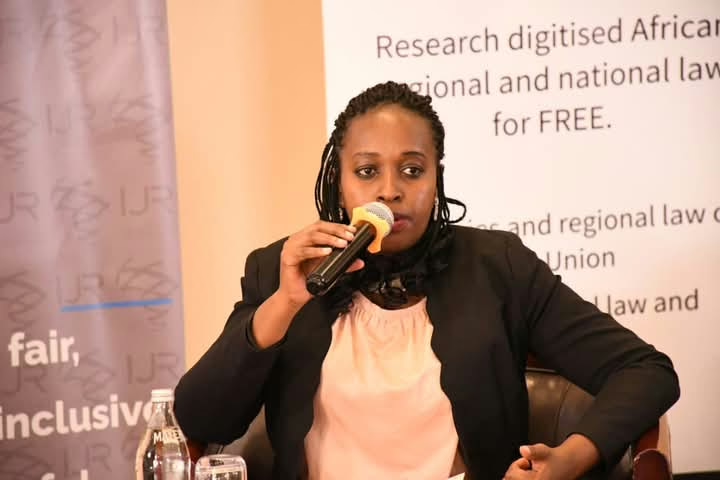
So, how does Martha and her team decide the thematic areas to cover in their civic education engagements?
“Before planning for any engagement, we circulate a feedback form to the potential participants to get their views on what they’d like to learn. It is from such feedback that we establish which topics to cover in the upcoming session and plan adequately.”
Preparation in this context includes gathering training materials and deciding on the language of delivery. She’s Afrique Hub uses Swahili and Kikuyu while facilitating training sessions to avoid language barrier issues.
Second, she also focuses on her passion subjects, or the areas where she can deliver competently. Therefore, while there are trending topics that everyone is keen to jump on, it’s important to stay grounded as a civic education organization to avoid overstretching your resources or dealing with a disengaged audience.
The Ups and Downs of Being a Civic Education Champion
She’s Afrique Hub has been championing civic education at the grassroots level since November 2022. Martha shared some of the cherished experiences that fuel her passion and desire to serve her community.
-
When Justice is Served
Although she’s yet to qualify as an advocate, Martha and her team usually flag some cases during their legal aid camps, which they refer to qualified advocates to take up in court pro bono.
“It’s usually a ‘wow’ moment when an elderly person approaches me, or comes to our offices to share that the judgment went in their favor, or, regarding succession matters, they were able to figure out how to carry out the process. Their relief and gratitude mean everything to me.”
-
Visible Mindset Shift Among the Youth
Programs like the Heroine’s Club and the Youth Leadership Programs give She’s Afrique Hub a unique opportunity to empower the youth to think differently. According to Martha, such forums spark a keen interest in civic engagement and politics, especially among teenagers and young adults.
“We often witness a mindset shift within that age group when they start asking follow-up questions or even pressing to have follow-up sessions. Some even declare their desire to join political leadership in the future, or tell you how they’ve acquired new role models among the facilitators. I’m motivated when they approach me and tell me, “I want to be a lawyer like you.”
-
Creating a Platform Where Youth Can Access Transformative Training Opportunities
Besides the in-person activities, She’s Afrique Hub also runs a WhatsApp group where they post training and empowerment opportunities, including local and global fellowships and workshops in civic education areas such as democracy, human rights, and governance.
“Some of the young people in the rural areas are unaware of the opportunities that lie in different programs/ fellowships, and some of those who are aware do not know how to access such programs.” As highlighted earlier, Martha herself is a beneficiary of various fellowship programs, including the Salzburg Global Civil and Civic Education Fellowship, which allowed her to travel outside Kenya for the first time. “When the young people get an opportunity to attend these fellowships, the mindset shift from someone ignorant of civic matters into an empowered individual is always so apparent. So, creating that platform and encouraging them to re-imagine or re-think how they can leverage global opportunities and bridging the gap between them and such opportunities is fulfilling.”
Challenges in Running She’s Afrique Hub
-
Political Interference
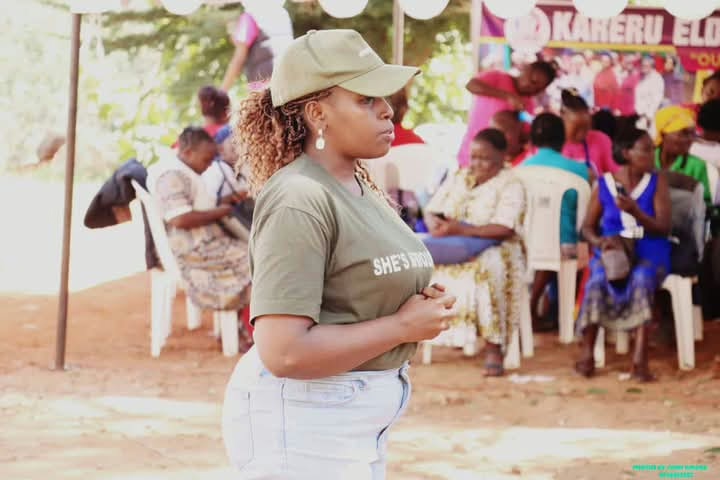 A unique challenge is opposition from current elected officials. “Sometimes when you’re running certain programs at the grassroots level, elected officials, including MCAs and MPs, can turn hostile, driven by insecurity, because they think you intend to run against them for the representative seat they currently occupy, yet your sole focus is on serving the community.”
A unique challenge is opposition from current elected officials. “Sometimes when you’re running certain programs at the grassroots level, elected officials, including MCAs and MPs, can turn hostile, driven by insecurity, because they think you intend to run against them for the representative seat they currently occupy, yet your sole focus is on serving the community.”
-
A Culture of Transactional Participation
One of the most unfortunate challenges Martha experiences, particularly in Kiambu County where She’s Afrique Hub operates, is a deeply entrenched handout mentality within the community. “You can invite people for a training or an engagement, and they ask, “What’s in it for me” beyond getting educated on the subject matter, because they expect a monetary token for spending their time at the training.”
Essentially, a lot of people at the grassroots level still have a low appreciation for civic education. Martha points out that the tokenism mentality challenge is not unique to She’s Afrique Hub,
Despite such challenges, Martha draws inspiration and motivation from other change-makers who never gave up on their countries, such as Nelson Mandela. “I believe that changing the narratives within grassroots communities is not a one-day thing.” During a ‘bad day at the office’, she turns to her support system, which includes mentors. “My mentors often tell me that such occurrences are commonplace in the civic education space. So, I firmly believe that each day brings its own challenges, yet these challenges can fuel you to keep on moving. So, I never give up.”
Why is Civic Education Every Lawyer/Advocate’s Responsibility?
“Knowledge is power, and when communities understand their rights, they can hold their leaders to account by asking pertinent questions, like ‘where do their taxes go?”. Such knowledge also positions them better to advocate for development projects in their communities. Therefore, there is a big need for communities to participate in civic education programs, and for lawyers to spearhead such conversations for the sake of social justice.”
Martha calls upon the entire legal fraternity, including legal entrepreneurs, managing partners at law firms, and in-house counsel in different sectors, to support civic education in general through the following avenues.
- Corporate Social Responsibility (CSR): To channel a portion of their CSR budgets toward organizations like She’s Afrique Hub, empowering such organizations to facilitate more training at the grassroots levels, reach more diverse demographics, and create a more significant impact.
- Pro Bono services: They can take up some of the legal matters affecting a significant portion of the community, such as land cases pro bono, or at a subsidized fee.
- Drafting petitions on different areas that support communities.
- Identifying the gaps in the laws/policies and fronting them at the County Assembly or the National Assembly.
- Coming up with petitions or policies that support civic education, because there is a dire need.
“Most elected leaders are threatened by an informed electorate; they’d prefer that the masses remain ignorant, so that they can take advantage. I’d urge lawyers to spend some of their time using the law as a tool for social change and legally empowering the people in the community.” If you’re passionate about civic education or would like to offer She’s Afrique Hub any form of support, partnership, or facilitation, you can reach her through the following email addresses: marthanwambo@gmail.com or hubshesafrique@gmail.com. You can also reach the organization via a phone call or text, through 0711562449.
Dear Martha, The LawDown Africa celebrates you as a civic education champion, a woman lawyer giving back selflessly to the community. May your efforts multiply tenfold as we work toward having an empowered electorate.


